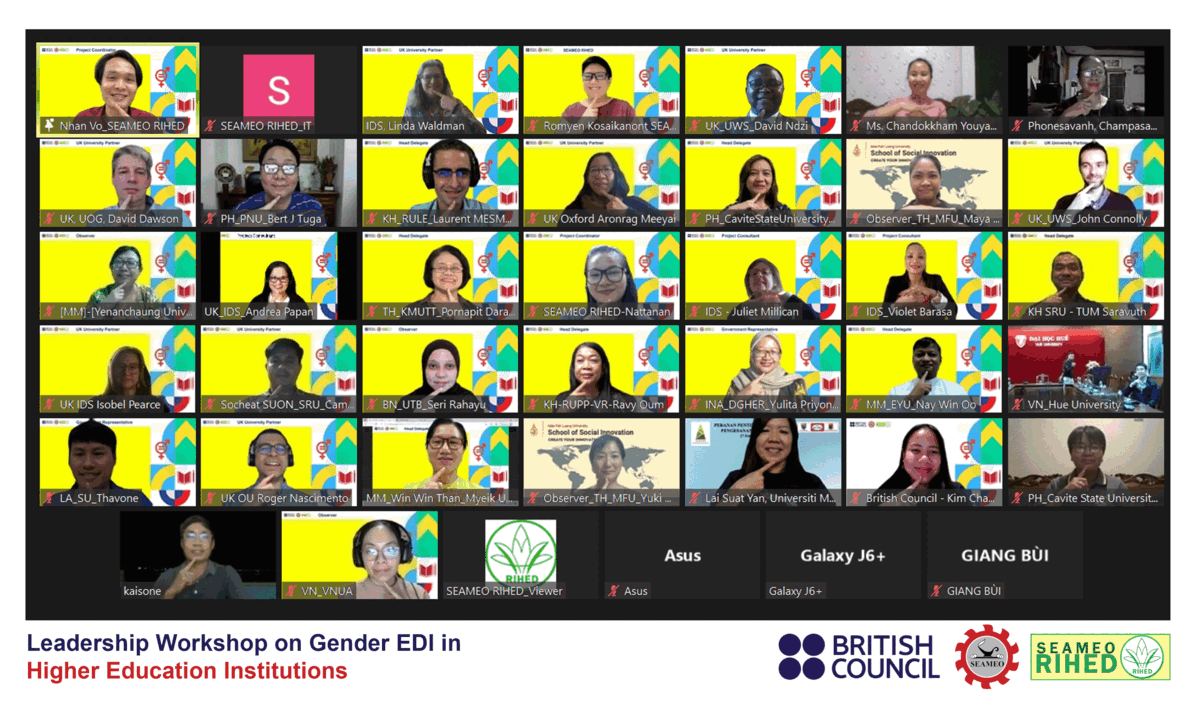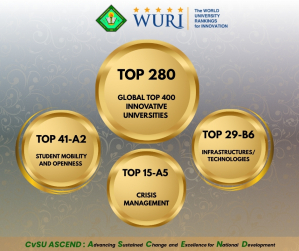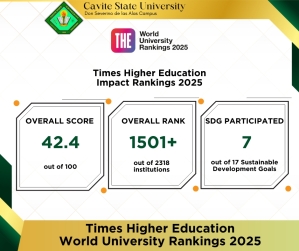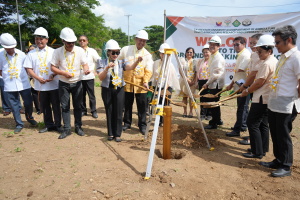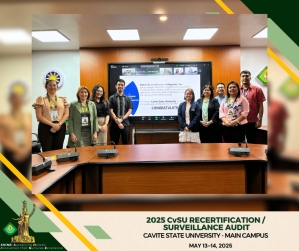![]()
Bangkok, 16 March 2022 – On 7-9 March 2022, SEAMEO RIHED and the British Council supported the Consultant Team from the Institute of Development Studies (IDS), University of Sussex in conducting the Leadership Workshop on Gender EDI in Higher Education Institutions. The Workshop virtually brought together more than 60 high-level leaders from 35 universities in 11 SEAMEO Member Countries, as well as management-level leaders from 5 UK universities, including the University of Sussex, Aston University, the University of Gloucestershire, the University of the West of the Scotland, and University of Oxford to leverage collective intelligence towards more equitable, diverse, and inclusive leadership in higher education.
Facilitated by the Consultant Team from IDS, the 3-day Workshop focused on Gender EDI Definitions and Review of Policy Case Studies, Strategies and Practices, and Future Plans on Improving Gender EDI in Southeast Asian Higher Education Leadership and Impact Monitoring respectively. To forge a common understanding among the participants, the complexities of gender EDI were highlighted by a brief introduction to the structural, occupational, organisational, interpersonal, and individual natures of the exclusion of women, as well as the intersectionality of gender equalities with other axes of difference, including race, class, and location.
With the diverse national and institutional contexts of Southeast Asia in mind, the Southeast Asian and UK participants embarked on stimulating discussions and peer learning sessions about gender EDI challenges. As diverse as its context, gender EDI in Southeast Asia encompassed different levels of progress. Some countries have regulation and formal body in place to ensure gender equity in the leadership roles and research team in higher education institutions, but face difficulties in maximizing these tools or putting them into practice. Some still struggle with raising awareness in gender EDI with the public and higher education leaders. Like their Southeast Asian peers, the UK universities recounted their different prioritised areas in gender EDI. One of their common challenges is, however, the implementation of their existing measures and policies. Despite their different challenges, the participants from both regions agreed on the strong impacts of cultural factors on the implementation of gender EDI policies. Hence, best practices need to be adopted with a consideration for different contexts.
To continue moving forward, the participants explored potential joint efforts in addressing shared gender EDI challenges in 3 key areas: Institutional Governance and Policy, Training and Capacity Enhancement, and Community Engagement in Strengthening Gender EDI. Furthermore, they also identified respective institutional challenges in gender EDI and developed initiatives to potentially address them throughout the upcoming SEA-UK Leadership Exchange Programme. To conclude the 3-day Workshop, all the participants from 35 universities in Southeast Asia and 5 universities from the UK, as well as SEAMEO RIHED, the British Council, and the Project Consultant Team shared their takeaways from the 3-day Workshop and reinforced their collective commitment to continue strengthening partnerships of leadership with gender EDI within Southeast Asia and with the UK.
The Workshop is the second core activity of the Project on Strengthening Leadership with Gender Equity, Diversity, and Inclusivity in HEIs in the GMS and Timor Leste, which aims to foster sustainable network of leaders among Southeast Asian and UK higher education institutions leaders to promote gender equity, diversity, and inclusivity. Under SEAMEO RIHED’s leadership priority, the Project is part of a more comprehensive SEAMEO RIHED Programme on Enhancing Capacities for Collective Learning and Continuous Development of Higher Education Institutions in the SEAMEO Region with 4 key components in innovative learning and teaching, futuristic leadership and good governance, future-oriented internationalisation, and sustainable research ecosystems.
For more information, please visit: https://rihed.seameo.org/